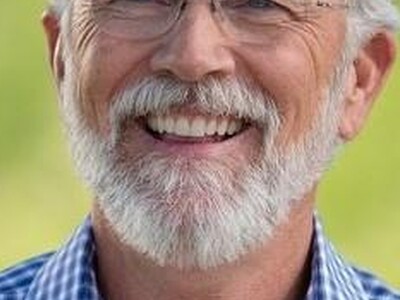No Drought & Changing Diets
No Drought & Changing Diets plus Food Forethought. I’m Greg Martin with today’s Northwest Report.
A quick check around the west and northwest shows that water supplies should be in pretty good shape this growing season. USDA Meteorologist Brad Rippey says most of the West should not experience drought.
RIPPEY: As we head into the spring of 2011 there is very little in the way of drought in the western United States. Again you have to go to the far south, Arizona and New Mexico to find any drought whatsoever and across the entire two-thirds of the northern west there is no drought of any type. Reservoirs are down just a little bit in a few states but snowpacks are so abundant that that should help to really fill out most of the western reservoirs so whether you are talking for soil moisture or hydrological issues, reservoirs storage, there should be very little in the way of drought issues.
Most humans know that certain types of foods tend to make us a bit more gassy than others. Now a new study out of Britain shows that changing diets for cattle and sheep could help reduce greenhouse gas or methane emissions.Feeding the animals maize silage, naked oats and higher sugar grasses could reduce the amount of methane they produce, the study by Reading University and the Institute of Biological, Environmental and Rural Sciences showed.
Now with today’s Food Forethought, here’s Lacy Gray.
What’s the reward for driving a nonpolluting electric or plug in hybrid vehicle? More taxes of course. In a damned if you do, damned if you don’t situation drivers of these vehicles in Oregon may be facing a 1.43 cents tax per mile if the Oregon Department of Transportation has their way. Proponents of the proposed bill rationalize it stating that “everyone not driving these vehicles are paying a tax, why shouldn’t they?” This “life isn’t fair, get over it” take isn’t really the best message for legislators to send when they’ve been pushing car owners to make the switch to nonpolluting vehicles. Another problem with this proposal is how the state will go about implementing a way for electric vehicle owners to report the distance they’ve travelled in and out of the state of Oregon. Tracking devices on these vehicles opens up a mess of privacy issues. Other states, such as Washington, are considering charging electric vehicle owners a flat rate fee per year, per vehicle. This approach maybe wouldn’t get state coffers the biggest bang for the buck, but it would certainly be much more palatable to consumers than mileage reporting or vehicle tracking devices.
Thanks Lacy. That’s today’s Northwest Report. I’m Greg Martin on the Ag Information Network.














